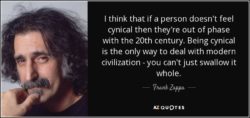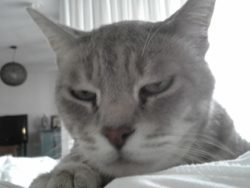Duncan Smith's Blog, page 2
June 27, 2017
People Who Don’t Read Fiction

Every so often I meet people who don’t read fiction. They’re proud of it too, in the way other people are proud of not drinking or gambling. But why? Today I’m going to try to understand the strange mentality of those who take up permanent residence in the fact world. They come in various types.
Mind you, the first two types can be forgiven for they are victims.
The BFZ – Book-Free Zone
The BFZ grew up in a house without books because reading wasn’t valued. They were never taught the pleasure of getting lost in a book. You’ve got to feel sorry for these guys. They’re doomed to spend a lot of time on the train playing games on their phones.
The RLM – Ruined by Literary Masterpieces.
The RLM also grew up as a non-reader, but decided to give it a try. Then he had the bad luck to start with some awful prize-winner or overhyped ‘masterpiece.’ Said masterpiece turned out to be an overwritten mess with no story and the RLM returned to watching Netflix, convinced fiction is not for him. He may still read non-fiction, valuing the directness and lack of artifice, but has been scared off fiction for life. (By the way, I will use ‘he’ and ‘she’ alternately, but all types come in both genders).
Some other RLMs have been made that way by being forced to read clever but dull literary works in high school.
Enough of the victims. We now move on to the hardcore anti-fiction types. These people make a point of actually avoiding fiction.
The OWSI – Obsessed With Self Improvement
The OWSI takes herself very seriously. She’s not concerned with self help, like poor cousin the OWSH, but self improvement. She has native high intelligence and wants to take it as far as possible. The OWSI has a commitment to learning. Her ultimate goal is to understand the true nature of the world before she dies.
The OWSI can be a little paranoid and wants to empower herself by learning about as many topics as possible – from business, to politics, to neuroscience. Ambitious and driven, she sees anything that doesn’t teach her a practical skill or improve her mind as a waste of time. She tends to dismiss fiction is a frivolity. This is a blind spot in her armoury, for the division of life into ‘true and false’ is too simplistic. Fiction would also enhance her sense of empathy – a highly practical skill.
The LAE – Life as an Exam
A close relative of the OWSI, the LAE is also obsessed with learning – partly from innate curiosity, but also the deeply instilled fear of failing exams. That ‘exam’ could take the form of dinner party chat on a topic the LAE hasn’t read up on, making bad investments, or falling foul of some local custom while overseas.
The LAE makes a point of reading serious non-fiction on as many topics as possible, and always at the back of his mind is that childhood nightmare of getting 49% on the ‘exam’ through lack of study.
The LAE is the type of person who takes a holiday but thinks only of work – because life is serious business and leisure is for losers. In other words, the LAE is a workaholic and proud of it … and that’s not helping.
The OFAR – Only Facts Are Real
No doubt the definitive type of person who won’t read fiction, the OFAR doesn’t want to know about anything that is ‘just made up’- although by that logic he should also avoid songs and movies.
With his insistence that facts are real but fiction is made up and therefore worthless, the OFAR is extremely literal-minded. His view is that facts = real = useful, and fiction = non-real = useless.
He will read newspapers, textbooks, or other ‘factual’ works. At a stretch, he may read a biography, but not a book about the life of a fictional character. An extreme OFAR may even regard movies as a waste of time. Indeed, if you’re trying to sell fiction to an OFAR, your only chance is by luring him into the next category.
The BOATS – Based on a True Story
The BOATS is an OFAR who has softened her stance and decided to read a novel (or watch a film) because it is Based On A True Story! Yes, it is for these people this catchphrase was made and tacked onto the end of movie posters. Imagine you’re trying to appeal to an OFAR. The conversation might be something like this:
“Have you read X? What an amazing story!”
“What is it – a novel?”
“Yes. It blew my mind. Wait til you read it.”
“I don’t read fiction.”
“But it’s incredible.”
“Exactly. It’s not real – it’s just made up.”
“But,” (winces internally) “I heard it’s … based on a true story.”
“Wait, what? It’s based on a TRUE story, something that really happened? OK I might check it out.”
And now, some honourable mentions. The following types will read fiction, but only in a particular way.
The CFL – Condescending Fact Lord
For a time, novelists were regarded as authorities on life, human nature, and other weighty topics. For the CFL, this role has been seized by those kings of the fact world, the scientists. The CFL now sees authors as little more than court jesters providing light entertainment for their betters.
The scientist Richard Dawkins is a cultured, well-read man, but also a CFL. He quotes with approval the late Douglas Adams. Adams said that while he once looked to writers for the great truths, it is now only scientists who can provide them. His own light comedies were perfect examples of Adams’ willingness to play court jester in the new world of the CFL.
The GPA – Guilty Pleasure Apologist
The GPA does read fiction, but only what she describes as ‘trashy novels.’ She’s a serious person over-concerned by what others think of her cultural habits. Believing she’ll be judged, the GPA allows herself to indulge her real tastes by using the ‘guilty pleasure’ disclaimer. Also known to apologise for ‘dancing to cheesy love songs after a few drinks.’
The GOOJFIC – Get Out Of Jail Free Irony Card
The younger relative of the GPA, the GOOJFIC is also worried about how others see him. He’s supposed to only like underground bands, along with obscure books and movies. In reality, the GOOJFIC actually likes some popular stuff too. Recent invention of the Irony Card allows him to enjoy mainstream culture while pretending to hate and disdain it, because he is ‘liking it ironically.’
The NFS – the Non-Fiction Snob
The NFS belongs to several of the above groups at once, and enjoys a constant state of smug superiority over other people. He or she will always be smarter, cooler, and more successful than you. Then again, at the end of the day, the NFS will still end up dead like the rest of us.
These are some of the main types of people who don’t read fiction. It is possible I’ve got them wrong, in which case I’m happy to be corrected. Send in your comments. In the meantime, here are my top five reasons why people should read fiction.
Life is Not an Exam
Working hard is good; being a workaholic is not. Workaholics are one of the few types of ‘holics’ who are proud of their disease. People who reads only non-fiction through a need for constant learning are ‘leisure time workaholics.’ That is, they can’t do anything in their spare time unless it has a constructive purpose. They can’t just go on holidays and lie on the beach with a novel, they need to do something worthwhile.
To those people I say ‘Lighten up!’ Life is not an exam. Well, not all the time anyway. Read something for pleasure, not just the perpetual advancement of your knowledge. Besides, if you think you’ll only learn from non-fiction, you’re being way too literal minded.
Fiction is Truth in Concentrated Form
A good fiction writer can extract a truth about life and express it succinctly in a structured form. For ‘truth’ you could substitute the word ‘fact.’
A fiction writer can put a fact in a context that illuminates it. A good writer will clothe a truth through characters, actions, and a sequence of events, so it’s vividly understood. Anyway, documentary film makers work in much the same way, constructing a coherent narrative to show a truth – thus mirroring the techniques of fiction. The film maker selects from a large range of material to shape a story. More to the point, the distinction between fiction and non-fiction is far less than one might think.
I could point out that many novels are heavily researched or based on lived experience, but that’s getting a bit close to the ‘based on a true story’ spiel. It shouldn’t be necessary to sweeten the deal for the anti-fiction brigade.
Escape From the Self
One of the greatest tyrannies we face is being trapped within our own minds. A good novel frees you from this prison and allows you to enter the mind of not just the author but the characters in the book, whose personalities may be quite distinct from the author’s.
A novel can give you the power of time travel into the past, or the imagined future. As the saying goes, the past is another country, they do things differently there. This allows us to escape the pathological myopia of assuming the way things are now is the way they always were or will ever be.
Escaping from the self helps you realise there are other selves out there, each with their own concerns even if they are different from your own. In that way, reading fiction is a weapon against narcissism and chronic self-absorption, and in the age of the selfie we need that more than ever.
Fiction Is Better Than Life
The real world can be pretty damn tedious. There are plenty of things you would like to happen which probably won’t, due to blockages of various kinds. In fiction, you can skip past the tedium of mundane reality and the blockages of the fact world.
I’ll be the first to admit that in my own novels, what happens in, say, chapters 3-20 is dependent on events happening in chapters 1-2. In the real world, those events probably wouldn’t happen. This means that in life one is often stuck, so to speak, in the frustrating world of chapters 1-2. In fiction, you can get past those tedious limitations and reach the interesting world of chapters 3-20! And that’s fine, as long as you don’t turn it into a ‘Mary Sue’, in which case your preference for fiction will have become pathological.
Who Wants to Hang Around With an OFAR Anyway?
Some people are intelligent but not too smart. The guy who says only facts are real is usually on par with a robot still trying to pass the Turing Test.
The line between fact and fiction is considerably blurry. One has only to look at history. Many inventions and social changes started out as imaginative fiction before becoming facts. Many things once believed facts turned out to be fiction. Some of the great characters of fiction are far more real in the mass human psyche than actual people who have lived and died unremarkable – indeed boring – lives.
In the end, it’s unnecessary to set up any great opposition between fiction and non-fiction. Both can be enjoyable and educational. Yet reading is an end in itself, not just a means to an end. Still, if we’re going to take a utilitarian approach to the activity of reading, the bottom line is that reading fiction may or may not make you smarter or better informed, but it’s highly likely to make you a better person. There is no more practical outcome than that.
About the Author
Duncan Smith creates ‘music-novels’ – books that come with their own musical soundtrack albums. He is the author of The Vortex Winder and The Maelstrom Ascendant. His latest novel, Cultown, is about a charismatic man who creates the ultimate cult. All soundtracks, by Australian rock band Lighthouse XIII, are available through iTunes.
Duncan Smith’s website and blog are here http://vortexwinder.com/
June 3, 2017
The Mirror Test

There’s always one kid who goes too far, isn’t there. For a couple of years now, celebrities have been competing with each other to show how much they hate Donald Trump. Well, we finally have a winner. Comedian Kathy Griffin just pulled a stunt where she held up a wax replica of Trump’s severed head. Fake blood and all.
You might call this ‘edgy’ humour, so to speak, but it backfired. Griffin’s act drew condemnation from both sides of politics (and even from Chelsea Clinton) and she had to apologise.
First, let’s get the tedious disclaimer out of the way. I’m not a Trump supporter. As an Australian, I’m neither Democrat nor Republican, just an independent observer.
So what was Griffin trying to achieve? Really, she was just trying to jump on the bandwagon with the rest of the cool kids. Since Trump first ran for president, he’s been cast as the symbol of pure ideological evil and been a punching bag for the showbiz elite of America. For the last couple of years, US artists and celebrities have been falling over themselves trying to show how much they hate him. Streep, De Niro, and a cast of thousands. Even the lead guitarist from Metallica had a go. The whole thing turned into a giant celebrity circle jerk with each person grandstanding how progressive they are through voicing hatred for Trump.
In the wake of this, poor old Kathy Griffin waded in with the severed head and realised only too late she’d gone too far. Instead of eliciting waves of approving ‘hear hears’ and ‘right ons’, as she’d expected, she got condemnation not just from conservatives but from the people she’d been trying to impress. Because – who’d have thought? – maybe cutting people’s heads off isn’t that great, especially during these terrorist times when ISIS extremists do exactly that.
Having realised her mistake, Griffin made a public apology. Not to Trump, of course! To everyone else. It was basically: uh, guys, gee, we all hate Trump, but I guess I went a bit too far.
So how did we reach the point of fake severed heads? Well, one of the biggest problems with politics now is the simplistic division of left and right politics into good and evil. It’s all become a bit fanatical. If you start to think your team is wholly good and the other team entirely evil, your perspective gets more than a little warped. Self awareness disappears, as does a broader perspective. You start to think your side can do no wrong and the other side no right.
Probably a fair guide, when considering if something’s a good idea is to apply what I call the mirror test. Just think, ‘if the situation were reversed, what would we think? How would we react if our opponents did this to us?’
For example, imagine Hilary Clinton had won the election. What would have happened if thousands of Trump supporters had staged a protest march about the result? Everyone would have laughed at them as sore losers with no respect for the democratic process, who held on to an arrogant assumption of the right to rule. So if it’s not OK for the other team to do it, why should you? It’s the same thing. Before staging the post election march, Hilary’s fans should have asked themselves ‘does this protest march show us as defiant freedom fighters with right on our side? Or does it just make us look like jerks?’
That’s the mirror test. ‘What would we think if the other mob did this?’ So, before holding up a severed head, Kathy Griffin should have thought – ‘hey, would it be cool if one of the “deplorables” did this to Clinton or Obama?’
You’ve got to almost feel sorry for Griffin. So many celebrities have been virtue signalling with their public statements against Trump, all Griffin wanted to do was join in the fun and up the ante a little. She thought she’d get a few pats on the back. She probably thought, ‘hey Meryl Streep hit a homer when she made that anti-Trump speech, wait til they see this!’ But Kathy Griffin was ‘that one kid who went too far.’
Still, perhaps some good will come out of it. Because when your political protest starts to resemble something ISIS would do, maybe it’s time to calm the hell down a bit.
May 29, 2017
Big Bang Theory Disproves God

In the late 19th century, the theory of evolution made people doubt the existence of God. For me in 2017, it’s not evolution but the Big Bang Theory. No, not the scientific concept of the origin of the universe, the TV show. But what does a sit-com have to do with the existence of God?
First, I don’t mean God in the usual sense of ‘a creative supernatural being.’ I’m using God to mean ‘a force for order and justice.’ I’m further narrowing it down to apply within the world of the creative arts, or showbiz. In other words, I once held the belief that there was some kind of force for order and justice in the world of showbiz. A pretty naive belief, of course! Still, one always begins as an idealist.
There are many people who aspire to work in the creative arts. You want to be a famous muso, writer, actor, or whatever. When you start out, you know it won’t be easy. Still, you hold on to the belief that if you’re talented and work hard, one day you’ll make a living out of it. You might hold another belief, more mysterious and profound, that there’s some kind of cosmic force on your side. Some type of benevolent power which ensures talent and effort will eventually be rewarded. For the sake of argument, I’ll call this ‘God.’
Unless you’re lucky, you gradually realise both these beliefs are nonsense. First, you find out how hard it is to make a living in the creative arts; that it’s only the small majority who make a basic wage out of it. Second, you see many odd things that prove that in the arts world there are no benevolent cosmic forces, only market forces.
For example, many people want to be authors, sign to a big publisher, and have a bestseller. Some succeed but most fail, and it’s getting harder than ever these days. Then you see someone like Cara Delvigne. She’s one of the world’s top models – and rightly so – yet it turns out she’s about to be an author too. Someone has ghost-written a book that will come out under her name. (They’re admitting it this time, after the outcry when beauty blogger Zoella was busted for not disclosing it). There’s no doubt the book will sell too. So, without ever studying writing, grappling with the creative challenges of writing a novel, or trying to get past the literary gatekeepers, Cara Delvigne is going to be a bestselling author. That’s the power of market forces. Delvigne is a powerful commercial brand so she gets to be an author without any effort at all. Meanwhile, plenty of real authors are stuck in limbo.
If there were gods of justice – of meritocracy – in the arts, that wouldn’t happen. But the real world is ruled by the god of market forces, so it does.
To take another example, the main actors from the sit-com Big Bang Theory are now being paid close to a million dollars each per episode. No, not a million bucks between them. Not a million a year. A million bucks each per ep! Now, I am a fan of the show but for artistic worth, there’s no way those actors are worth a million an episode. Yet in terms of market value, it seems they are.
Let me be clear – there’s no doubt these actors are all good and have worked hard to get where they are. But could any of them say with a straight face that they do a million bucks worth of work each episode?
What can we make of this odd situation? On the one hand, you could see those actors pocketing one mill an ep and think “Good on ’em. They beat the system!” At the same time, you look at it in terms of my notion of ‘God’, the idea that there’s a cosmic force which makes effort meets reward in the creative arts. From that perspective, you raise an eyebrow and think “so many artists can’t make a dollar, and they’re getting a million bucks for acting in a sitcom!”
It’s an absurdity, sure, and what’s striking is the scale of the absurdity.
To repeat, I’m a fan of the show. I’ve spent many a half hour amused by Sheldon’s Asperger’s antics. But they’re not really treading the path of genius these days. For one thing, Big Bang Theory is now about as mainstream as you can get. In the early days, it was quite fresh – a comedy about four nerdy guys and a perky gal. Now three of the guys have partnered up, with Raj the token ‘spare prick at an orgy’ for comic effect. So these days we get a lot of stuff about couples and their issues. And really, could there be anything more mainstream than a show about young couples hanging out, talking about relationship issues, marriage, and babies?
It’s not as if these actors are creating much at this point. They’re reading lines written by professional writers. Sure, they shaped the characters but that was years ago, and after more than 200 episodes they could probably play these parts in their sleep. Now in its tenth season, Big Bang Theory, is pretty much by-numbers. Each character is essentially set. The same motifs recur: Howard’s coolness is challenged. Raj does something effeminate, then oversteps boundaries and Howard gets angry. Penny has a shot at Amy and Sheldon’s sex life, as part of the usual normal vs. weird trope. Sheldon is rude and emotionally obtuse in an amusing way. At least with the demise of Howard’s mother, we’re spared the endless fat jokes, but the other characters carry on as usual.
At 24 episodes a season, some of the character traits are going to wear a bit thin after ten years, so you’ve got to cut the writers some slack. But the grooves are so well worn the actors are basically phoning it in these days … and collecting a million bucks an ep for it.
Do I begrudge their success? No, this is not about them, it’s about the non-existence of God! Do I envy them? Yes, of course. I envy anyone who can make a living from their art and work at it fulltime. Naturally, I’d love to be a commercially successful artist so my work could sustain me through life and into retirement (you know, like a normal job), rather than working hard for no income and probably having to commit suicide at 60 due to poverty. Aside from that, it’s nothing personal against the BBT actors. If they made it big, that is their good fortune!
Acting is a terribly risky profession. For every actor who makes it, there are scores who don’t. It’s great the BBT actors succeeded and now live comfortable, affluent lives. They rolled the dice like every other rookie entering the acting profession, and came up winners. No doubt they worked hard along the way perfecting their craft. And mind you, they’re all very good in their roles. In the bigger picture, their success could even be seen as a reassurance that creative work can pay off.
Financially, having a hit sit-com must be like winning the lottery for an actor – and not many do. Plenty of show ideas are pitched to the TV networks. Some go to a pilot. Some of those go to a first series. A percentage avoid the axe and continue. A smaller number again become hits, like BBT. Yet for that small minority, the rewards are lucrative. A hit TV show is worth a lot of dough to the networks. That allows the actors to hold them to ransom and demand these huge salaries. The Big Bang actors are just doing what the cast of Friends or Seinfeld did before them. Someone is making mega bucks from these shows, so they might as well take their share.
In this sense, I have no problem with the BBT actors making a million bucks an ep. My problem is the imbalance between them and the many others in the creative field who are so poorly paid, indeed in some cases, not paid at all.
In my own case, I spent thousands of hours writing and creating novels with musical soundtracks. I’ve done three of those, so, three full books and albums. For all that effort, I’ve never seen a dollar of profit. There are plenty of other creative artists around the world in a similar position, who would simply like to make a living out of their work.
In contrast, a group of actors in an ever more formulaic sitcom are phoning it in and picking up a million bucks an episode, or 24 million a year each. It’s not their fault, but the contrast amounts to an absurdity, and it’s the sheer scale of the absurdity that makes me a born again atheist, in the sense defined in this essay.
I started out in showbiz with the naive hope that there’s some kind of benign cosmic force to run the world in an orderly way which bears some resemblance to a meritocracy. Not in the sense of reaping ludicrously inflated salaries, but simply in the hope that over time, talent and hard work will meet with opportunity and some kind of reasonable reward.
Unfortunately it turns out there are no benign cosmic forces in operation; there are only market forces and the Matthew Principle. That principle says “to he who hath, more will be given, and for those who have nothing, even that which they have will be taken away.”
In this theology of showbiz, the Matthew Principle is Satan, and it rules the world. Yet there is no evil intent in any of this. Matthew is simply a reflection of the brute power of market forces in action. ‘God’ in those terms is simply an absence – an absence of benevolent cosmic forces.
Still, what you gonna do? It’s the way of the world. Probably the best response is to sit back, raise an eyebrow, and have a chuckle at the fresh crop of absurdities coming through each and every year.
Dub a laugh track over that.
April 10, 2017
The Wisdom of Solomon and Clapton

There seems to be one idea a few religions have in common – that physical life isn’t much good. Apparently when you get really advanced, you realise all the pleasures of physical life are unsatisfying and not worth much at all. It’s only when you transcend the world and get in touch with a higher power that you find real satisfaction.
Now who was it who said this: Christianity, Buddhism, Scientology? Or was it AA? It’s hard to keep track, and of course there are so many differing interpretations. Yet the idea is widely believed one way or another.
Anyhow, I’m not buying it. I’m going to start a religion which celebrates the beauty of the physical world. To quote Thomas Swan from Cultown, it’s the gift of life, not the wheel of life.
What is with this need to put down our world? A while ago, someone gave me a book with a story of the famous king, Solomon, he with the reputation for enormous wisdom. According to the book, Solomon was a wealthy king, could indulge his every wish, and had a harem of a thousand women. After a while he got sick of it all, and came to the conclusion there’s something deeply unsatisfying about physical life itself.
That’s one theory; here’s another. How about the theory that anyone who needs a thousand women is psychologically disturbed to begin with? Even a hundred women is way over the top. If you can’t manage with a hundred, a thousand is not going to do it for you either. Therefore, instead of accepting some ‘deep’ conclusion about the inherently unsatisfying nature of life, we should realise that the experiences of the mentally ill are not those upon which to base our beliefs.
I mean, imagine there was some philosophically inclined beggar in Solomon’s kingdom. Suppose he broke into a pie shop one night and ate a lot of pies. After a while he’d get sick of it. Should we then conclude there’s something deeply wrong with pies? Should one adopt a theory of the intrinsic worthlessness of pies, or that pies are somehow evil? (And for the vegans out there, I assure you they were vegetable or fruit pies!)
No doubt there was far more to the character of Solomon than this minor anecdote relates, as that reputation for wisdom must have come from somewhere. But purely in relation to the tale of the a thousand women, there are no deep conclusions to be drawn.
Leap forward a few centuries and another story comes to mind. Seemingly very different, but really much the same. In his autobiography, rock star Eric Clapton wrote about a new guitar he coveted as a young man. The guitar was on display in a shop window, and the young Eric gazed at it with longing day after day. He was obsessed with the guitar, completely consumed by the burning desire to possess it. He finally got it, and you can guess what happened next – as soon as the coveted guitar was in his possession, he lost all desire for it. It suddenly meant nothing to him.
What are we to draw from the story? Is there a deep philosophical lesson here about the inherent foolishness of desire and the emptiness of physical life?
No, not really. The only conclusion we need draw concerns the mental health of Eric Clapton at that time. In fact, the young Clapton was right to desire that guitar with all his heart, because a guitar is a wonderful thing. Clapton should have grabbed that guitar and loved it and played it six hours a day and thanked his lucky stars on a regular basis. Instead, the youthful Eric only showed that he was psychologically disturbed and incapable of happiness. His imminent stint as a heroin addict is further evidence for that. Still we are all often foolish when young. By now, Clapton is doubtless much older and wiser, and reflects wisely upon his youthful folly.
The point of these two examples is that, for some reason, people tend to look at psychological illness and misinterpret it as wisdom. People hear about Solomon’s harem of a thousand women and Clapton’s guitar and nod their heads earnestly as if some profound truth has been revealed about the unsatisfactory nature of the physical world, when all they should be seeing are the pseudo-problems of two spoiled and disturbed young men.
Physical life is a wonderful blessing. We should enjoy it while we can. Buy that guitar and play it. If you have one woman, enjoy your good fortune. If you have a harem of ten, that’s eccentric but may be your good luck. Any more than ten … you’ve got problems.
But especially, stop confusing mental illness with wisdom, and above all don’t turn it into a religion.
April 4, 2017
How Could They Drink the Poison?

How Could They Drink the Poison? How Could They Not?
There’s a giveaway for my book Cultown on Good Reads. To coincide, I’ll briefly revisit a famous cult from the past.
I’ve been reading a lot about Jonestown, the settlement created by crazy 1970s cult leader, Jim Jones. Until recently, I knew very little about Jones and his People’s Temple group. All I knew was that he somehow got 900 of his followers to drink poison in a mass suicide.
The usual view of this is one of incredulity. How could they have drunk the poison? Why could anyone drink poison just because someone told them to?
For a normal citizen in a free society, the question makes sense. But for the people of Jonestown, being told to drink poison was simply the last in a long line of steps of intimidation. Sure, People’s Temple began with a lot of love and idealism. The charismatic Jim Jones seemed to offer a path to Utopia. But it ended with twelve months of physical and psychological brutalisation in a closed community surrounded by two hundred miles of South American jungle. As cult escapee Debbie Layton said, that jungle served as their prison walls.
Sadly, Jonestown was sold to these people as a paradise on Earth, an ideal society in a tropical climate. Apart from the climate, which turned out to be a grind anyway, the reality could not have been any more different. Jones ran his town as a police state, complete with harsh privations, informers, thought control, and so on. Inhabitants lived in crowded conditions. They were forced into twelve hour days of hard labour, fueled by pitiful rations. People were closely monitored, informed upon, and punished for the slightest infractions.
It’s a mistake to judge the entire movement just by its ending. There’s a book of interviews with ex-members of People’s Temple who weren’t at Jonestown. Some of them look back on People’s Temple as a time of great idealism, especially during the years in San Francisco in the early 70s. While of course there had been problems in San Francisco, it was largely after the group traveled to South America that events really went south.
Before reading about it, I assumed Jones’ cult was a religious group, yet it turned out this was largely a front for Jones’ real aim, which was to establish a socialist society. If it was once based on genuine political ideals, Jonestown finally served as a model for many of the failings associated with socialist societies. It did not help that Jones turned into an utter madman by the last twelve months of his life, but with the crushing of individual thought, strict social control, informing and citizen abuse, Jones established a mini-regime over the inhabitants of his jungle city. While Jonestown did not go as far as public executions or murder, in all others ways, it appeared to be a microcosm of the most notorious 20th century totalitarian regimes.
How could they drink the poison? The thing is that once you were in Jonestown, you were there to stay. In her book Seductive Poison, Debbie Layton described the near impossibility of escape. She only managed it through her position as a trusted, high up member. For anyone else, escape was almost out of the question.
I’ve also read Raven, Tim Reiterman’s dry, journalistic account of People’s Temple. It’s exhaustively detailed, and a fascinating study. Yet it was in Layton’s personal story that the conditions of Jonestown come across with more immediacy. Far from being a socialist paradise on Earth, Jim Jones’ police state in the jungle was closer to a hell. The real question is not so much ‘how could they have drunk the poison?’ as ‘how could they not have drunk it?’ To a large degree, they had little choice. In the end, it’s possible death would have come as a relief to a good many of the Jonestown citizens. That poison would have brought a minute of agony, then relief from the cruel reality into which they had stumbled. In the end, that was the only escape they could find.
February 25, 2017
So Hard to Say Goodbye

(If you’ve never loved a pet, this story will mean nothing to you. If you have, you’ll understand. Names have been changed to protect privacy.)
I knew the grief was coming. I knew what to expect. It still took me by surprise.
For years I dreaded the phone call. Last Saturday it came. My ex-girlfriend Jen rang to say her cat Alfie had died. She went to bed Friday night and the next morning she found he’d died peacefully in his sleep, lying in the little round, fur-lined bed he liked so much.
Alfie. The cat who jumped into my arms the first day I met him. The cat with the loudest purr in the world, who loved people and was curious about everything going on around him. He lived to 16, now he was gone.
I don’t intend to write about Alfie’s unique personality, but the emotional process of dealing with his loss. The first night I was OK. Numb, then more numb as I drank alcohol to ease the pain. There was even a small sense of relief because what I’d feared had finally happened, so I didn’t have to fear it anymore. Then gradually over the next few days, the grief came on in waves, some gentle, some more intense. For years I knew this was coming, yet it still caught me in an ambush.
One of the hardest parts of breaking up with Jen was losing Alfie. I never lived with Jen. I’d stay over on weekends, then during the week I’d go there Tuesday night for dinner and some TV before going home. It was a comfortable arrangement, happy enough for a couple of years, and for a while it felt like a home. Then we drifted apart, as people do. After we split, Jen was kind enough to allow our Tuesday nights to continue. That was pretty much about seeing the cat, and to some degree for his benefit as well as mine.
This stopped after a year, as Jen wanted to move on in her life. Fair enough. But I still got to have Alfie at my place for a week or two when she went overseas for work. Such a treat for both the cat and myself. It was always hard taking him back to Jen at the end, and each time I wondered if it would be the last. He was getting old.
The Monday after his death, I made a sad pilgrimage to collect a couple of keepsakes. Jen was at work but left them in the cafe downstairs. She also left a card for me. It said: “I am too emotional and sad to write much, sorry for that. All I really need to say is thank you for everything you did for Alfie. He loved you so much, and you made his life better.”
I cried when I read it. Alfie was like the innocent child in our break up. And while she stopped loving me, he never did. Perhaps that’s one reason a pet’s death is so hard to take. Because animals love with a simple devotion that people do not. While humans are tricky creatures with feelings subject to the ravages of time, animals love with a constancy most humans cannot attain.
Alfie died last Friday night, although I didn’t know until the next day. The night he died, I woke at 3.30am, restless and unable to go back to sleep. I got out of bed and lay on the couch in the living room, a breeze blowing across the room. I wonder if was then that his spirit came to say goodbye. Skeptics can scoff, I don’t care. I believe his consciousness will go on to other lives, other adventures. He had a hunger for experience, that cat. He was curious, playful, and loved people. While he did have a beautiful and comfortable home, I think part of him was a little bored and restless at times. Now he is free to roam; his spirit can go on to those new adventures. He will take with him the immense love Jen and I had for him.
But it’s so hard to say goodbye.
Grief is a strange thing. It can stop you in your tracks and make everything else seem irrelevant. Grief is the price you pay for loving a pet because one day they’ll break your heart.
I’d prepared for this day, even fictionalising it in my book, The Maelstrom Ascendant. He was called Finzi there, and both his death and resurrection were woven into the plot. In reality, you can prepare all you like but when the day finally comes, all you can do is endure it. The desolation, the nameless sorrow, the questions that can’t be answered. It’s made easier by the sympathy of others who’ve been through it too. When you hear their kind comments, it restores your faith in people.
Alfie. At the end of the day, I’m glad I knew him, and the pain of saying goodbye is a price worth paying. I’m comforted to know I did everything possible for him. As Jen said, he loved me and I made his life better.
The Buddhists speak of impermanence: everything in life passes and dies. For what it’s worth, some feelings transcend death. The ephemeral and the eternal are one.
Rest In Peace, Alfie. Always loved. Never forgotten.
February 22, 2017
How To Earn $990 An Hour For Doing FA

I recently applied for permission to quote two Slayer song lyrics in my novel, Cultown. I went through a copyright agency who said there’d be a minimum fee of $495 per song to process my request. At two songs, the bill would be at least $990.
I sent a polite reply saying that such a fee would take a while to recoup from book sales, and asking why it was so high? This question was not deemed worthy of a response – at any rate, none came (perhaps they would have billed me another $400). But it got me thinking about the alternate worlds inhabited by lawyers and authors. From here on, I’ll refer to the copyright agency as The Agency.
If I’d gone ahead, The Agency would have earned $990 from my book. How long would that have taken? I’m guessing about an hour. I’d already emailed them details of the songs, writers, publishers, and the book extract where the lyrics would appear. All The Agency had to do was forward my email to whoever handles Slayer’s music. Presumably Slayer would then have looked at my submission, said yes or no, and sent their reply back to The Agency, who would then have forwarded the news to me via email.
So, it might be about an hour’s work for The Agency to earn the $990. But what if there were complications in the process? Then obviously the fee would go up. Don’t forget the $495 per song was a minimum fee.
What this means is that it would take The Agency about an hour to earn $990 from my book, or to put it another way, their rate of pay would be $990 per hour. This made me wonder how long it would take me to earn $990 from my book, and what my hourly rate of pay would be. Here are some rough calculations.
I’m not sure how long it took to write my novel Cultown, but 500 hours might be a fair guess. That includes planning, writing several drafts, major revisions, proofreading and so on.
That was the ‘easy’ bit. The tough part is selling copies. Sadly, I’m not yet up with JK Rowling for fame. As, shall we say, a ‘lesser known’ author, selling books is a long winded, circuitous process. Let’s say I earn a royalty of $5 per book sold. That means I’d have to sell about 200 copies to make $990, and to do that I probably need to do (say) 100 hours of promo work. That’s a rough estimate.
So far then, it’s taken me 600 hours to earn from my book what The Agency earn from it in one hour. Great!
But wait. I forgot about those song lyrics. If I use them, it means I first have to earn $990 to pay The Agency, then I could have a crack at making another $990 for myself. So, for the sake of argument let’s add on 50 hours of promo work to sell another 200 copies.
So, it’s now taken me 650 hours to earn from my book what The Agency earned in one hour. That means my hourly rate of pay is $1.52 – one dollar and fifty-two cents – compared to The Agency’s hourly rate of $990. Mind you, $1.52 would be a decently hourly wage if we were living in 1817. In 2017, not so much.
Doesn’t that just show what a higher plane the legal profession inhabits? What they can earn from my book in an hour’s work, I would earn from it in 650 hours. Their rate of pay is $990 an hour, mine is $1.52. And the only conclusion I can draw from that is to wonder why the fork didn’t I go into law?!
On reflection, maybe quoting those lyrics isn’t such a good idea. All I wanted to do was quote from a couple of Slayer songs in my novel. But if that means some lawyer can charge $990 for doing bugger all, maybe I’ll give it a miss.

February 12, 2017
The Book With the Girl in the Title
[image error]
Have you wasted years of your life reading how-to guides about book marketing? Then stop. This is the only one you’ll ever need.
If you want to have a literary bestseller, you’ve got to get the title right. That means choosing the right words. Just make sure one of them is ‘Girl.’
It all started with Stieg Larsson’s The Girl With the Dragon Tattoo. That huge bestseller was followed by The Girl Who Played With Fire and The Girl Who Kicked the Hornet’s Nest. Even the fake Larsson, who carried on the series when Stieg died, stuck with the formula when he wrote The Girl In the Spider’s Web.
It’s called branding. See, John B. Citizen and his cousin Connie the Consumer haven’t got time to remember a bunch of different stuff. So you’ve got to help them by hammering your brand into their crammed-full brains so it stands out from all the other brands already in there. When they hear ‘The Girl’ they should automatically think, ‘that’s the Swedish guy who writes bestsellers about Girls.’
In literary marketing, there’s this thing called ‘discoverability.’ It means the ease with which potential readers can discover your book. The ease with which they can remember and Google it. Notice that word I repeated? Ease. You’ve got to make it easy for people by planting the right branding keywords in their brains. Discoverability can be a mountain to climb, but if you get the right key words they can propel you right to the top in a meth-fuelled ski lift.
Computer analysis reveals that the ultimate keyword is ‘Girl.’ But here’s the funny thing about Stieg Larsson – when his books were first published in Swedish, they didn’t have ‘Girl’ in the title! The first one translates as ‘Men Who Hate Women.’ Bit of a downer, right? It was only when translated into English that marketers applied this genius-level branding about girls. When the books became mega hits, they knew they’d cracked the code.
Even so, there was room for improvement because people’s attention spans get shorter by the year. The Girl With the Dragon Tattoo might have flown in 2005, but by 2010 those sort of titles were too longwinded. Girls having complicated tattoos and doing stuff was too much for people to take in. So the next step was to simplify down to caveman speak. Short, simple phrases easy to remember, easy to Google. So we had a book called Gone Girl, a title that combined brevity with alliteration in a manner that made it a real cinch to remember and to Google. It even alliterated with Google, such that your fingers probably even Googled it without you having to think about it. It was just an automatic response. Gone Girl Google – that’s marketing Gold, baby.
Where could they go from there? Was it possible to ride the Girl-train any higher up the summit of Discoverability Mountain? Well, they tried. The next step was to eliminate any extraneous actions or features and go right to the source. Why not just a book called Girl? Yet the awful news at the top of Discoverability Mountain was that John Lennon had written a song of that title in 1966, and you don’t want to be using some old title that’s already been had, even if it was only a song.
‘Why not just add an S?’ some bright spark suggested. So they did, only to find Lena Dunham had already got that with her hit HBO TV show, Girls. Oh dear, where do you go from there? Well, the marketing people paced back and forth their marketing offices, until the answer appeared. ‘OMG,’ someone said – and yes, it was literally the letters OMG that they said – ‘OMG, I’ve got it – Woman. That’s a fantastic title! It’s like Girl, only older.’ So they Googled that and what do you know, bloody John Lennon had got that too on one of his solo albums.
It was a sad and sorry mood in the marketing office that day as the team began their descent back down Discoverability Mountain. ‘There’s nothing for it,’ one of them said. ‘We’re just going to have to complicate our titles a bit. You know, add more words. Nothing too flash. None of your fancy tattoos or doing stuff with fire and hornet’s nests. Just keep it on the Dick and Jane level. How else are people going to remember it and Google it without even meaning to?’
That’s when we got The Girl on the Train – and the team was back in business. Indeed, at that point the dam burst and we had a flood of new bestsellers. There was Girl Online, by fake author and fashion vlogger Zoella. Girl Online was a splendid allegorical tale about the adventures of a girl who goes online. Then there was The Girl with all the Gifts, The Girl you Left Behind, and many more Girl-themed titles. The crisis in publishing was over. Everywhere you looked there was a new smash hit novel with a Girl in its name.
Only last week, I walked into a bookshop and was pleased to find this ancient ten year tradition alive in the title of a new bestseller, The Girl Before. I like it. It’s short, there are only three words, and one of them is ‘the’. Even better, some people will probably try Googling The Girl With the Dragon Tattoo or The Girl on the Train, and The Girl Before will automatically come up in their Google search by accident. If that’s not clever literary marketing, I don’t know what is.
So that’s how it’s done. The only real question is, what’s the next step? I’d like to throw this one out there and road test it with the PR team: how about the rebranding of classic fiction with some ever so slightly new titles? To Kill a Mocking Girl. The Great Gatsby’s Girl. Lord of the Girls. The Girls of Wrath. Or even Girls of Treasure Island. Given that an English theatre production last year turned cabin boy protagonist Jim Hawkins into a female, I don’t see why not.
For more marketing tips, follow me on Twitter and Facebook. Although the article you’ve just read probably says all you need to know.
Duncan Smith’s new book, Girl in the Car is out now through Penguin and Unwin House.

February 6, 2017
Robin Hood Rides Again

Yesterday, I started my attempt to put out a blog every Monday in 2017. And since today is Tightarse Tuesday, here’s an extra one today for half price – meaning you still get it for free. Which is appropriate, given today’s subject. It’s a little story I’ll call … Robin Hood Rides Again.
Last week, some guy tried to live-stream the Mundine-Green boxing match on his Facebook page. For those who don’t know, that means he put it on the internet so people could watch it for free. This was greeted with joy by 150, 000 Aussie cheapskates who didn’t want to pay the $60 Foxtel was charging.
Legend! Hero! Champion Aussie Battler! These were some of the comments on Twitter and Facebook applauding this guy. No surprise there. After all, Australia has the biggest rate of internet piracy in the world.
In olden days, Robin Hood stole from the rich and gave to the poor. Now in 2017, this guy was stealing from the rich Foxtel company and giving to the poor boxing fans of Australia. Legend! Hero! I’ll call him Robyn.
Foxtel wasn’t too thrilled and rang Robyn at home telling him to stop. After all, they’d paid a lot of money for the broadcast rights. Not only were they losing potential revenue, it was a slap in the face to those who’d already paid the $60, and set a lousy precedent for the future.
Robyn wasn’t pleased about being called at home. ‘How did you get this number?’ he demanded, miffed at the violation of his rights. And no, he wasn’t going to stop streaming. He was feeling pretty good about being the centre of attention, getting called a legend, an Aussie hero, and so on. As he told the Foxtel rep, he didn’t think he was doing anything wrong. After all, he himself had paid the $60 to watch the fight. So why shouldn’t he stream it?
Probably for this reason: if there’s a concert selling ten thousand general admission tickets, I can’t buy a ticket, make nine thousand photocopies and give them out free – even though I did pay for mine.
Well, next thing you know, Robyn is getting sued by Foxtel. And as Alanis Morissette used to say, isn’t it ironic? Because Robyn’s glorious act of charity could now cost him a lot of money, money that was lost by Foxtel. But wait – suddenly there’s a crowd funding page set up to pay Robyn’s fine and legal fees, which may be considerable. All he has to do is rely on his new ‘mates’ who called him a legend on Twitter. If they all just rally round and cough up a small amount – say, maybe, $60 each – there just might be enough to pay Robyn’s fine.
But what’s happened? Suddenly all Robyn’s new friends have melted away into thin air. Shurely, shome mishtake? As a post on Twitter put it “Spare a thought for ol’ mate Darren Sharpe today, also known as “Unofficial Australian of the Year.” 150,000+ Facebook users watched his live streaming … At $60 per viewer, Foxtel could easily argue a loss of earnings of $9million. He has set up a crowd funding page to assist, yet after seven hours, just $150 has been donated.”
$150? $150! That means those 150, 000 mates only gave up an average of 0.01 of 1c each. If that’s not a modern Shakespearean tragedy, I don’t know what is.
So now Robyn’s sitting sadly at home wondering what happened. He’d invited 150, 000 mates into his living room and they all turned out to be wombats. Maybe he wasn’t a legend after all.
And if you think about the difference between him and his 13th century predecessor, he wasn’t. The real Robin Hood took on the king’s army who were prepared to hunt down and kill him. Robyn just took on a pay TV company.
Robin risked his life to help people who were actually poor – peasants living under the harsh system of feudalism. Robyn just helped a bunch of Aussie cheapskates watch a boxing match.
Robin Hood risked his life fighting the king’s army, facing the chance of a sudden and violent end at any moment. All Robyn did was sit in his living room and point a webcam at the TV.
What’s that Donald Horne quote again? Something about the lucky country and second rate people who share its luck. Except for poor old Robyn who found out the hard way that Aussie internet thieves are not the ones you want to go shoulder to shoulder with in the trenches of 21st century life!

February 5, 2017
Judgments and Opinions

Just because a thing is sometimes bad doesn’t mean it is always bad.
Being ‘judgmental,’ for instance. A friend of mine, who is a Buddhist, recently confessed to this ‘fault.’ When he sees certain types of people in the street, he forms a negative opinion of them and feels bad for being judgmental.
I’m not sure who he meant, but it was probably one of those super-loud show ponies who seem to be everywhere these days.
My friend seemed to think he’d be a much more virtuous and spiritual person if he had no reaction to such people. I chimed in at that point with ‘but you’re allowed to have an opinion.’
It bothers me if the idea of being enlightened means sticking a vacuous spiritual grin on your face and having no opinions about anything. I’m sorry, but if you have no opinions, then you have no personality and you’re a boring person. Or if you’re really so spiritually advanced that you’re beyond having any views, maybe you should just move on to a higher plane and let the rest of us get on with being human.
What is really behind the attempt to be non-judgmental? Is it always a fault?
When we make a mistake, a common reaction is to overcorrect. So, someone expresses an opinion of something, finds out they got it wrong, and realises they were unfairly judgmental on that occasion. They’re so mortified they say, ‘from now on I’m never going to have an opinion, in case I get it wrong again.’ They’re so afraid of being thought judgmental, or causing offence, they’re unwilling to say anything controversial.
The better response would be ‘I got it wrong this time and learned from it. Next time I’ll be more cautious, but that won’t stop me having an opinion.’
And by the way, part of the problem is everyone’s so easily offended nowadays. That’s another story. The trend of being easily offended began as an attempt to make people accountable for what they say, but it has turned into a way of intimidating people into not saying anything at all. Let’s not go there …
When it comes to having opinions, a related fallacy is the idea that ‘X is sometimes bad so X is always bad.’ So, a given person realises that being judgmental is sometimes not very nice. That’s true, of course. But the person, overreacts and says ‘I must never form judgments anymore; that might make me judgmental! So I’d better not have any more opinions.’ And that, of course, is silly.
We encounter many things in life: people, events, concepts, beliefs, and so on. About some of these, we have no opinion, either because we don’t know or care enough to form one. Yet we’re entitled to form views about things we do know or care about.
Naturally, in forming opinions we should try to be fair, informed, and generous to what we are perceiving. We should also try to be aware of our own biases – although these are not necessarily bad, so much as inevitable. It is better to call them our perspectives.
We can say: I’m entitled to form an opinion of something if I know enough to do so. This opinion is not permanent (perhaps that is what is meant by a judgment). It is a temporary view formed from the best available evidence, and if new evidence arises I may change my opinion. But I won’t apologise for having one.
Now, let’s return to those ‘super-loud show ponies’ my friend felt bad about judging. If I see one of them, I’ll think ‘poser’ every day of the week. Is that being judgmental? No, it’s just my view on how people should behave.
People with an opinion contribute something to the discussion, no matter what the area. Take cricket, for example! The cricket commentator, Ian Chappell, has always got something to say, usually about the ethics or wisdom of what is taking place on the field. He might come across as a bit grumpy at times, but at least we know he cares.
If being spiritually enlightened means wearing a calm, placid expression and having no opinions, then leave me here in the dark. Or if it means loving everyone unconditionally, the task is too hard. If I ever reach the state where all I can do is fix a dopey spiritual grin on my face and love everyone, that’s the day I’ll be morphined out in a hospital bed about to depart this world.



